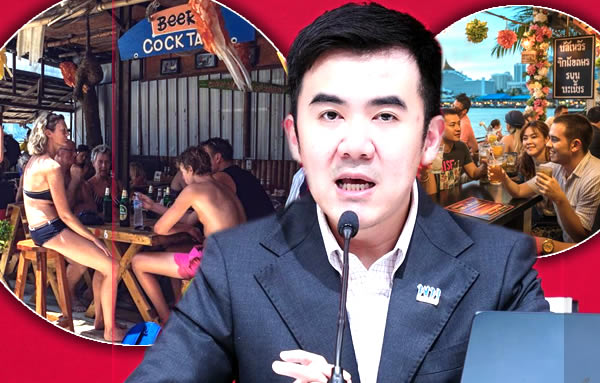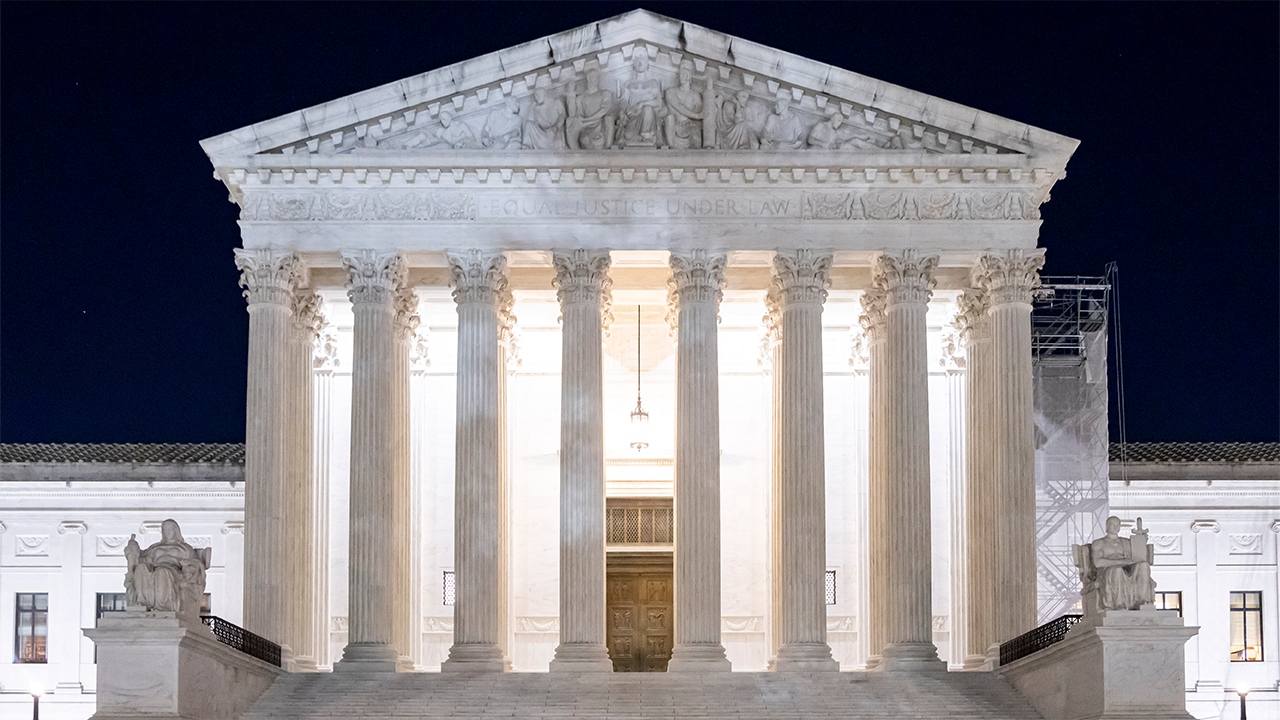Copyright thaiexaminer

Thailand’s new alcohol law backfires during high season as steep fines, unclear enforcement, and embassy warnings scare foreign tourists, leaving hotels, bars, and restaurants struggling with subdued spending and operational uncertainty across tourist hotspots, like Bangkok, Pattaya, Phuket, Chiang Mai, Hua Hin and Koh Samui. Thailand’s foreign tourism industry, already reeling from a 7.2% drop in arrivals last year, is facing a fresh crisis. This year’s Alcoholic Beverage Control Act, introduced by the previous government to liberalise alcohol sales, has backfired. The law lacks secondary or local regulations but imposes steep fines on drinkers finishing their drinks outside permitted hours. This week, Australia warned its citizens travelling to Thailand, while other Western nations voiced concerns. Foreign tourism operators say the confusion is already hurting the opening of the high season and blame the law for subdued spending. The Pheu Thai Party has called for urgent government action on the Alcoholic Beverage Control Act. Chanin Rungthanakiat, former party-list MP and deputy secretary-general, emphasised that local authorities must manage licensing independently. He said each province should establish committees to determine sales hours, buyer screening, and mitigation measures. The intervention follows growing concern among hoteliers, restaurants, and nightlife operators. Fines of up to ฿10,000 per person and per establishment are now in effect for violations. Moreover, foreign embassies, including Australia, have issued official warnings to tourists. Subsequently, the United Kingdom and the United States are closely monitoring enforcement. Pheu Thai party calls for urgent action to clarify alcohol law enforcement for tourism operators Mr. Chanin stressed that decentralisation is essential for peak season operations. Each provincial committee will include regional governments, local administrative organisations, private sector and social groups. They will set sales hours, locations, and procedures for screening buyers. Tourist-heavy provinces like Phuket may allow extended hours. Meanwhile, provinces with large Muslim populations may impose stricter rules. He highlighted that the law also supports small-scale and community alcohol producers. Businesses may advertise and educate consumers under the new rules. However, secondary legislation and committee appointments are required before implementation. Consequently, private-sector groups are urging rapid government action to prevent operational uncertainty. The Khao San Road Business Association reported widespread confusion among operators. President Sanga Ruangwattanakul said restaurants, bars, and hotels remain unclear about fines and enforcement. Additionally, establishments fear that stiff penalties or fines could deter foreign tourists and reduce overall spending. Confusion over alcohol law enforcement sparks concern among tourism and hospitality businesses Australia has issued the first warning to travellers regarding the new law. Furthermore, embassies in other countries are expected to follow. Mr. Sanga emphasised that enforcement ambiguity could undermine confidence and reduce revenue in tourist-heavy districts. Hotels, restaurants, and nightlife venues face operational uncertainty during the peak season. Sorathep Rojpojchanarat, president of the Restaurant Business Association and honorary advisor to the Thailand Hostel Association, echoed these concerns. He said fines apply to both customers and establishments consuming half bottles or jugs of alcohol beyond allowed hours. Consequently, the law may directly impact business revenue. Typically, November through January generates 20% to 30% higher revenue, with some locations reaching 50% increases. However, mid-November 2025 activity remains quiet. Additionally, foreign tourists appear cautious about alcohol purchases, reducing sales in Bangkok, Phuket, and Khao San Road. Despite government programs such as “Half-Half Plus” and “Travel Good, Get a Rebate,” overall revenue remains below previous years. Mr. Sorathep said these measures have provided only limited improvement. Meanwhile, businesses continue to worry about enforcement delays and potential fines. Peak season revenue faces risk as tourists reduce alcohol spending amid unclear enforcement The law repeals Revolutionary Council Announcement No. 253, issued in 1992. This announcement had restricted alcohol sales between 2:00 PM and 5:00 PM. Additionally, the law bans promotional activities that exaggerate benefits or encourage alcohol consumption. Educational content is permitted, but celebrity endorsements and indirect promotion remain prohibited. Mr. Chanin noted that provincial committees will manage compliance and balance economic activity with social safeguards. In tourist-focused provinces, extended hours may be allowed. Meanwhile, other regions may adopt stricter limits. However, committees have not yet been formed, leaving enforcement ambiguous. Small-scale and community alcohol producers may benefit from new promotional provisions. Educational content is now permitted. Celebrity promotion is limited, indirect promotion is prohibited, and sponsorship or publication restrictions apply. Operators require clear guidance to avoid fines. The Pheu Thai Party intervention also addresses tourism concerns. Letters are being submitted to Prime Minister Anutin Charnvirakul requesting clarification of enforcement, fine application, and promotional rules. Moreover, business associations stress the importance of protecting revenue during the November-to-March high season. Provincial committees are key to managing alcohol sales and guiding tourism operators on the ground Peak season enforcement has drawn scrutiny from foreign embassies. Australia has issued a warning, while the United Kingdom and the United States are monitoring developments. Additionally, foreign tourists may face uncertainty about fines and regulations. Hotels, restaurants, and nightlife venues have reported subdued activity despite ongoing arrivals. Mr. Sanga highlighted that Khao San Road is almost exclusively populated by foreigners, predominantly Europeans. Furthermore, purchasing power among visitors has not fully recovered to pre-pandemic levels. Consequently, establishments are cautious about serving alcohol without clear guidance. Restaurants, bars, and hotels face potential penalties for partial consumption. If tourists leave half a bottle or half a jug after permitted hours, fines apply to both the customer and the establishment. This has prompted concern among hospitality operators across tourist hubs. The Pheu Thai Party emphasises decentralisation as a practical solution. Provinces with high tourist traffic may adopt flexible rules. Meanwhile, areas with cultural or religious restrictions may enforce stricter limitations. However, the absence of committees and secondary legislation has delayed enforcement clarity. Operators ask government to prevent confusion and protect tourism revenue during peak season Operators are coordinating letters to the Prime Minister alongside business groups, including the Thai Alcoholic Beverage Business Association, Hotel Association, Nightlife Restaurant Club, and Khao San Road operators. The letters request meetings to explain the law and provide guidance. Additionally, they aim to prevent operational disruption during the peak season. Mr. Chanin emphasised that provincial committees are critical for managing sales hours, buyer screening, and promotional oversight. Extended hours may apply in tourist areas. Conversely, provinces with large Muslim populations may maintain shorter hours. Meanwhile, committee formation and secondary legislation remain pending. Embassies are closely monitoring the situation. Australia has already issued advisories, and other countries are expected to follow. Furthermore, unclear enforcement could reduce tourist spending in major destinations, including Bangkok, Phuket, and Khao San Road. Law supports local producers, while enforcement delays keep tourism operators uncertain and nervous The law supports local producers through Article 32 revisions. Educational content is allowed under Section 32/1. Celebrity promotion is restricted under Section 32/2. Indirect promotion is prohibited under Section 32/3. Section 32/4 forbids event sponsorship, while 32/5 limits publication of promotional content. Operators need guidance to comply. Peak season activity remains below expected levels. Many Europeans are reducing alcohol consumption due to fines and unclear rules. Consequently, revenue in November and December is lower than historical averages. Programs like “Half-Half Plus” and “Travel Good, Get a Rebate” have had limited effect. Previous Senate debates earlier this year provided the legal framework for the bill. The Senate approved the Alcohol Control Bill in August 2025 after House approval in March. However, these debates mainly addressed procedural issues. They do not resolve the current enforcement confusion raised by the Pheu Thai Party. Implementation delays are a pressing concern. Secondary legislation has not been issued, and committees remain unformed. Meanwhile, operators risk fines and face unclear rules regarding sales hours, buyer screening, and promotional content. Therefore, business groups stress the urgency of immediate government action. Clear guidance and committee formation remain critical to avoid revenue losses in tourism hotspots Mr. Chanin said decentralisation allows provinces to balance tourism activity, economic revenue, and social safeguards. Nevertheless, clear guidance and rapid implementation are essential to avoid disruptions during peak season. Foreign embassies continue to monitor enforcement closely. Australia has issued advisories. The United Kingdom and the United States are observing. Additionally, international attention has raised concerns over potential compliance issues for tourists and operators alike. Operators report that purchasing power among foreign visitors remains below pre-pandemic levels. Many Europeans are avoiding alcohol purchases due to fines and unclear rules. Consequently, sales in tourist hubs remain subdued despite ongoing tourist arrivals. The Alcoholic Beverage Control Act is the first major revision of alcohol regulation since 1992. It repeals the 2:00 PM to 5:00 PM restriction, updates promotional rules, and imposes fines for violations. Provincial committees are required to oversee compliance, but delays have raised concern among operators. Pheu Thai party intervention drives call for enforcement clarity to protect tourism revenues this season The Pheu Thai Party’s intervention has become central to high-season management. Letters to the Prime Minister stress enforcement clarity, committee appointments, and guidance for operators. Furthermore, they seek to protect tourism revenue during the November-to-March peak season. Business associations and provincial stakeholders emphasise that operational clarity is vital for the hospitality sector. Hotels, restaurants, and nightlife venues remain cautious. Meanwhile, tourist activity continues, but revenue and purchasing patterns have not recovered fully. Mr. Sanga said failure to clarify enforcement could reduce visitor spending. Confusion over partial consumption fines may further depress revenue. Consequently, operators remain hesitant to allow normal service hours. Provincial committees and clear enforcement measures are needed to stabilise alcohol sales and tourism Provincial committees are expected to manage sales hours, licensing, and mitigation measures. Tourist-focused provinces may adopt flexible rules. Regions with cultural or religious restrictions may enforce stricter measures. However, no committees have yet been appointed, leaving businesses in uncertainty. Pheu Thai’s position highlights the law’s operational impact on tourism. Peak-season revenue depends on clear enforcement. Businesses are awaiting guidance to avoid penalties. Moreover, foreign tourists require clarity to maintain confidence in Thailand’s hospitality sector. New alcohol law which ushers in a new liberal era, allowing for advertising and lifting irksome drinking bans People’s Party MP calls for repeal of alcohol control laws as sales are liberalised for tourist outlets However, it is concerning against the backdrop of an industry already reeling from a 7.2% fall in visitor numbers this year. The one bright spot for the industry has been an anticipated rise in higher-spending long-haul travellers. Significantly, these are the visitors who are particularly interested in combining alcohol consumption with their holidays in Thailand. Join the Thai News forum, follow Thai Examiner on Facebook here Receive all our stories as they come out on Telegram here Follow Thai Examiner here Further reading



